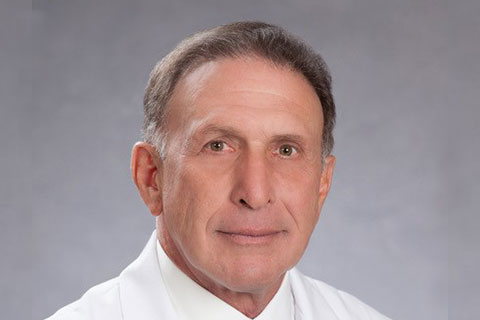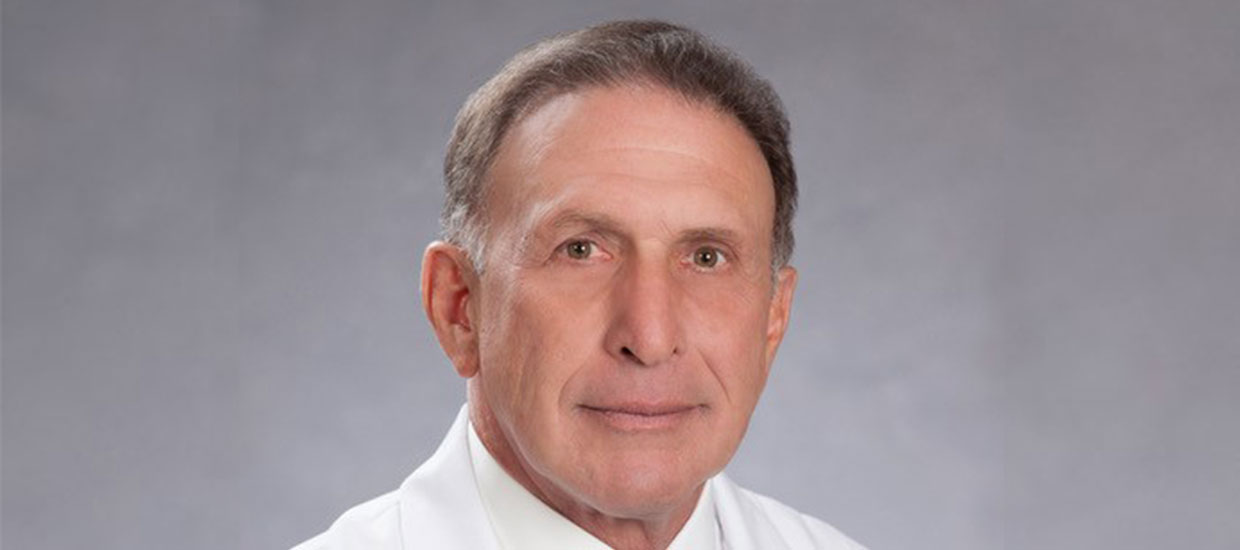In the hope of finding novel methods to treat, and possibly reverse, the effects of Alzheimer’s disease, Miller School of Medicine alumnus Barry Baumel, M.D. ’74, is embarking on a potentially groundbreaking clinical trial that will be the first anywhere to use multiple doses of mesenchymal stem cells.
The study, which is designed to determine the safety and effectiveness of delivering four doses of stem cells over a 16-month period, will be open to patients at UHealth – the University of Miami Health System – with mild Alzheimer’s disease symptoms, between the ages of 55-85, and who are otherwise healthy.
“It’s the first time in the world that anyone is giving multiple doses of stem cells,” said Baumel, the chief of the Memory Disorders Division in the Department of Neurology at the Miller School, and principal investigator for the phase one clinical trial. “But everything we know about stem cells has been learned from one administered dose. Alzheimer’s is an ongoing degenerative process, so you’re worse tomorrow than you are today. Because of this, we believe patients will need multiple treatments throughout the course of the disease.”
There is no cure for Alzheimer’s disease, which Baumel said affects an estimated eight million people nationwide, a number that is expected to nearly double in ten years. Despite the concerted efforts of researchers worldwide, Baumel says treatment has remained the same for the past 17 years. The last FDA-approved monotherapy for Alzheimer’s disease was Memantine in 2003. That’s why neurologists like Baumel are are now exploring the potential of stem cells, which have a potent effect on inflammation.
“We know areas of the brain that are damaged by Alzheimer’s have inflammation,” Baumel said. “We hope to reduce that inflammation, and if we can do that, maybe we can stop or slow the progression of the disease.”
In clinical trials designed and led at UM’s Interdisciplinary Stem Cell Institute (ISCI), mesenchymal stem cells (MSCs) have shown the ability to develop into many different types of cells. In addition, MSCs are thought to promote neurogenesis, which allows the brain to produce new cells in the hippocampus. This is the area where new memories form and where Alzheimer’s disease begins. The new brain cells may then be able to replace damaged cells in Alzheimer’s patients.
“Because the amyloid plaques found in the brains of Alzheimer’s disease patients are associated with inflammation, we hope to determine whether multiple infusions of stem cells can help to improve or stabilize that condition,” said Baumel. The single-site study is relatively small, only ten patients, meaning further trials would be needed if the results prove to be promising.
Baumel is also collaborating with Joshua M. Hare, M.D., director of ISCI and Louis Lemberg Professor of Medicine on an ongoing, placebo-controlled, study using single-dose mesenchymal stem cells developed by Longeveron, a UM life sciences spin-off company.
“Alzheimer’s disease is one of the largest threats to our aging population, and we need more innovative treatments to combat this disease,” said Ralph L. Sacco, M.D., M.S, professor and chair of the Department of Neurology and the Olemberg Family Chair of Neurologic Disorders, who encouraged Baumel to rejoin his alma mater as a faculty member seven years ago.
“I have always had soft spot for this school, because it was very good to me,” said Baumel, who also did a residency in neurology at the University of Miami/Jackson Memorial Hospital. “It took me in as a medical student and it trained me well.”
Baumel recalls becoming interested in the science of neurology while a student at UM, and the pride of following in the footsteps of the faculty’s renowned educators.
“When I was here as a resident, it was a wonderful time,” said Baumel, whose daughter, Nicole Baumel, just earned her MBA at UM. “A number of the attending physicians here went on to become chairs of departments at many other schools because they were so respected. When you reflect back, you realize just what an experience it was here.”
For more information on enrollment in the clinical trial, call 305-243-0184 or email MemoryProgram@med.miami.edu.





